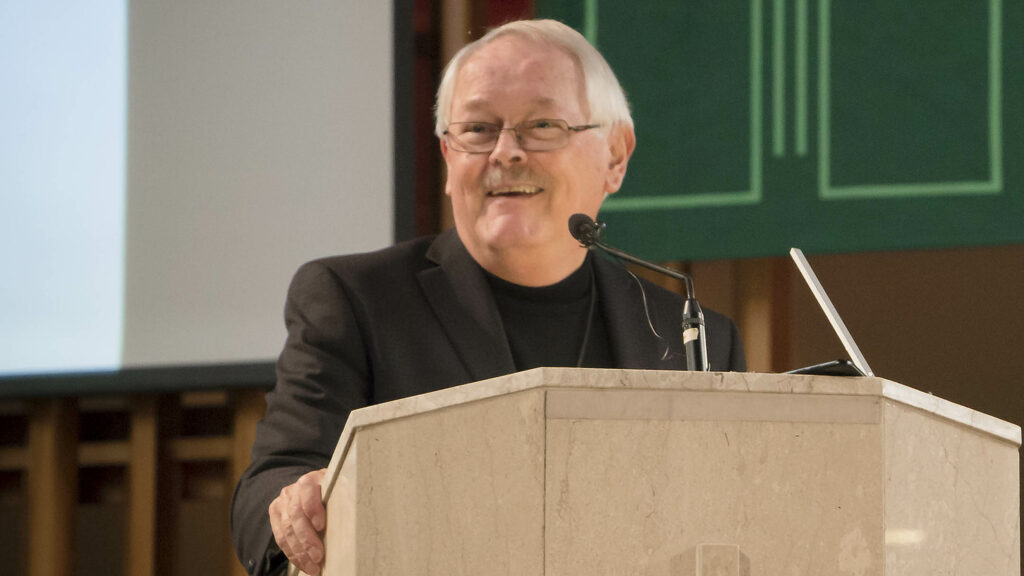Home is more than a house or a place on a map. It’s a place in the heart, the place where you most want to be at the end of the day. The metaphorical idea of home can help us sort out many things, not least how sex connects to love.
Sex can never be simply casual, purely recreational, something which does not touch the soul. Sex always touches the soul, for good or for bad. It’s either sacramental or harmful. It’s either building up the soul or tearing it apart. When it’s right, it’s making you a better person and when it’s wrong, it’s making you less of a person. Metaphorically, when it’s right, it’s taking you home; when it’s not, it’s taking you away from home. Sex is designed by God and nature to take you home. Indeed, it’s meant (metaphorically) to be your home. If you are going home after sex, something is very wrong. This is not, first of all, a moral judgment, but an anthropological one on behalf of the soul.
The soul, as we know, is not some invisible spiritual tissue floating inside our bodies. A soul cannot be pictured imaginatively, but it can be grasped as a principle. As we see in the insights of philosophers like Aristotle and Aquinas, the soul is a double principle inside us. It’s the principle of life (of all our energies) and it’s the principle of integration (what holds us together). This may sound abstract, but it’s not. If you have ever been present with someone who is dying, you know the exact moment when the soul leaves the body. Not because you see some spirit float up from the body, but because one minute the body is alive, an organism, and the next minute it is inert, lifeless, dead, and beginning to decompose. The soul keeps us alive and the soul keeps us glued together.
If this is true, and it is, then anything meaningful we do, anything that touches us at any depth, affects our soul, both its fire and its glue, either weakening them or strengthening them. Sex is no exception. Indeed, it’s the preeminent example. Sex is powerful and that’s why it can never be simply casual. It is either building up the soul or tearing it down.
Thirty years ago, teaching a night course at a college campus, I assigned my class a book of essays by Christopher de Vinck, Only the Heart Knows How to Find Them – Precious Memories for a Faithless Time. These essays are simple reflections by the author on his life as a young husband and father. They are warm, not unduly romantic, aesthetically crafted, and devoid of sentimentality. They make a strong case for marriage, not by making any apologetic arguments in its favor, but simply by sharing how marriage can make for a home, a calm place of mutual solitude that can take us beyond that overpowering restless search that besets us at puberty and drives us away from parents’ home in search of our own home. Marriage and the marriage bed can bring us home again.
At the end of the semester, a student in the course, a woman in her late twenties, came into my office to drop off her term paper. She was carrying de Vinck’s book and she shared this: This is the best book I’ve ever read. I grew up without a lot of religious or ethical guidance and I have slept my way through a couple of Canadian provinces; but now I know what I really want. I want what this man has! I want the marriage bed. I want my sex to take me home, to become home. Her insight merits repeating, not least today in a culture where sex is often divorced from marriage and home.
Earlier in my teaching and ministry, when I was still working more with young people who were sorting out what love means and who they might choose to marry and try to spend their lives with, the question often arose: how to does one recognize the kind of love on which you can build a marriage? It is a crucial question because love is not an easy thing to read or gauge. We can, and do, fall in love with all kinds of people, often with people who are all wrong for us, people we can enjoyably flirt with or have a honeymoon with, but with whom we could not share the rest of our lives.
What kind of love can you build a marriage on? It needs to be the kind of love that takes you home. You need a strong sense that with this other person you are at home because a marriage is quite different from a honeymoon. You go home from a honeymoon. In marriage, you are at home.
So too with sex. It’s meant to be something that takes you home and is your home rather than something from which you go home.

